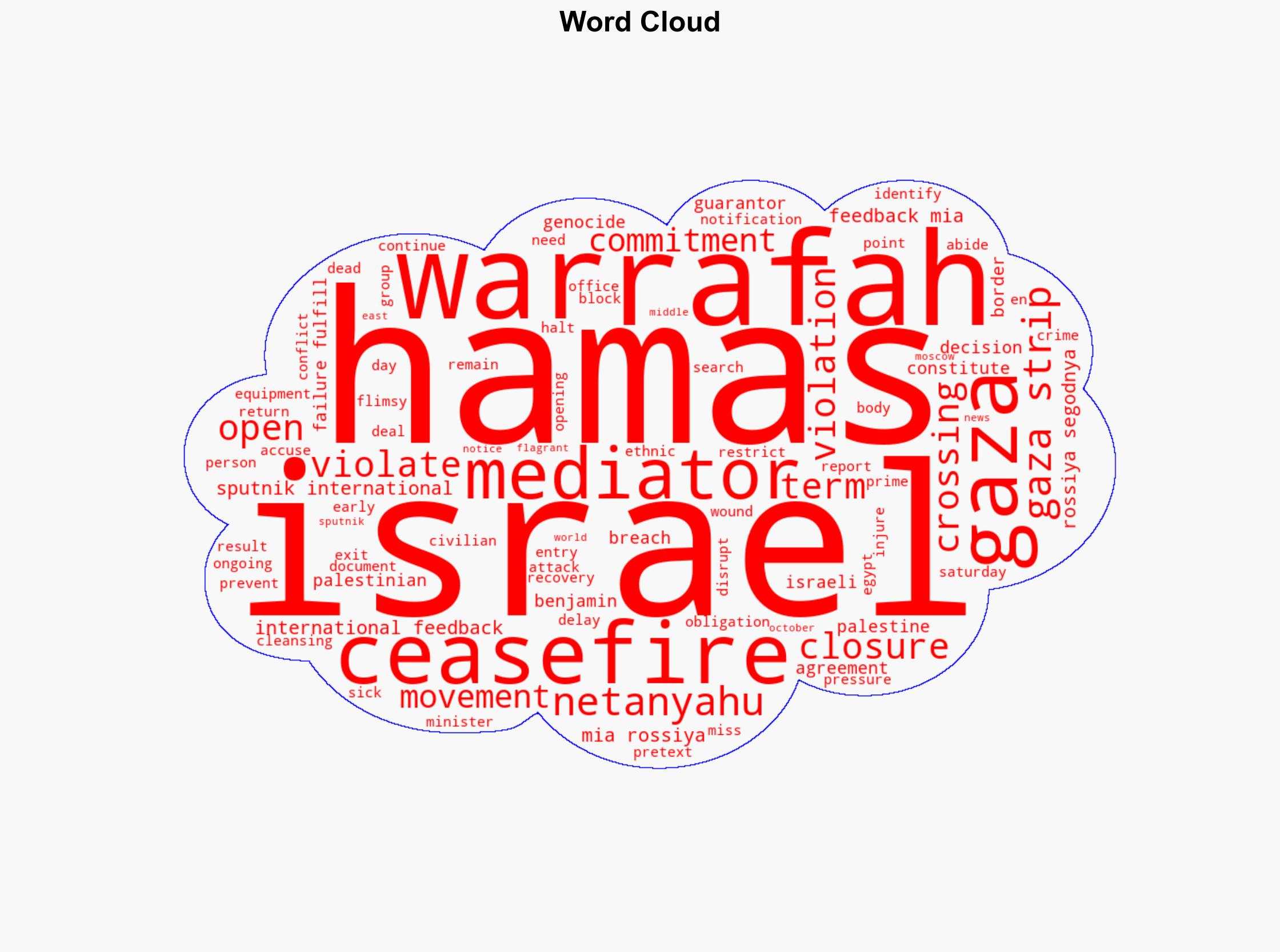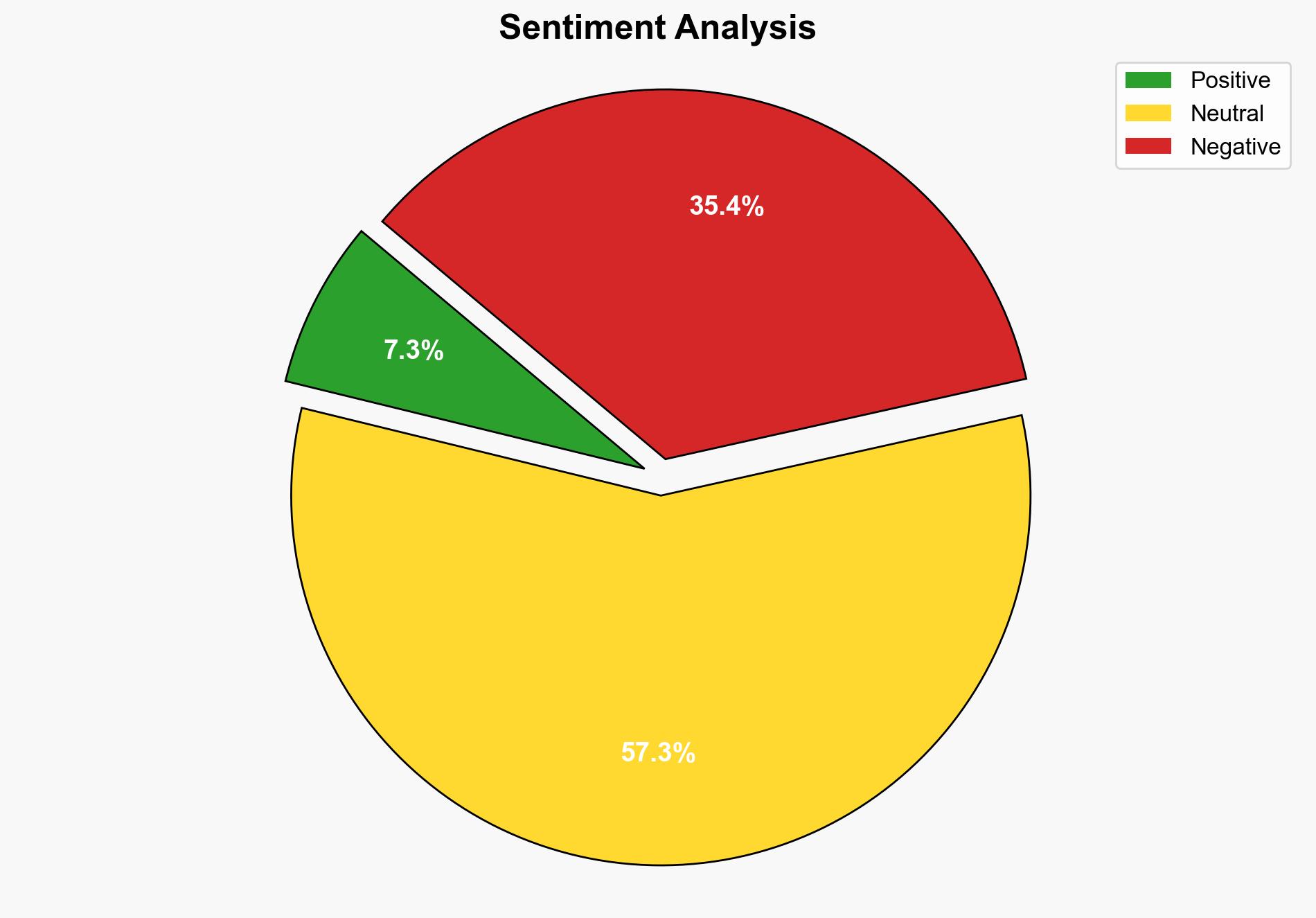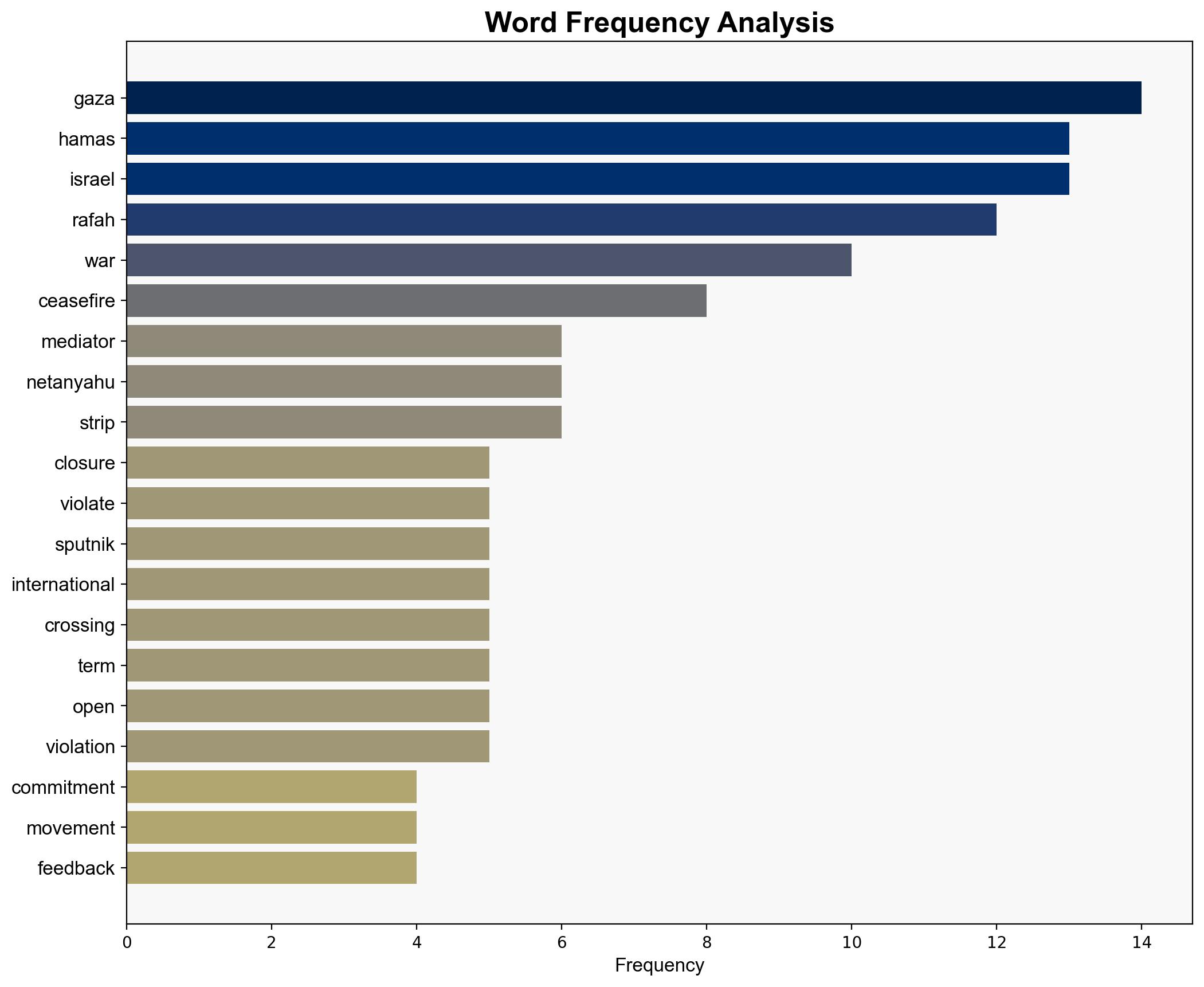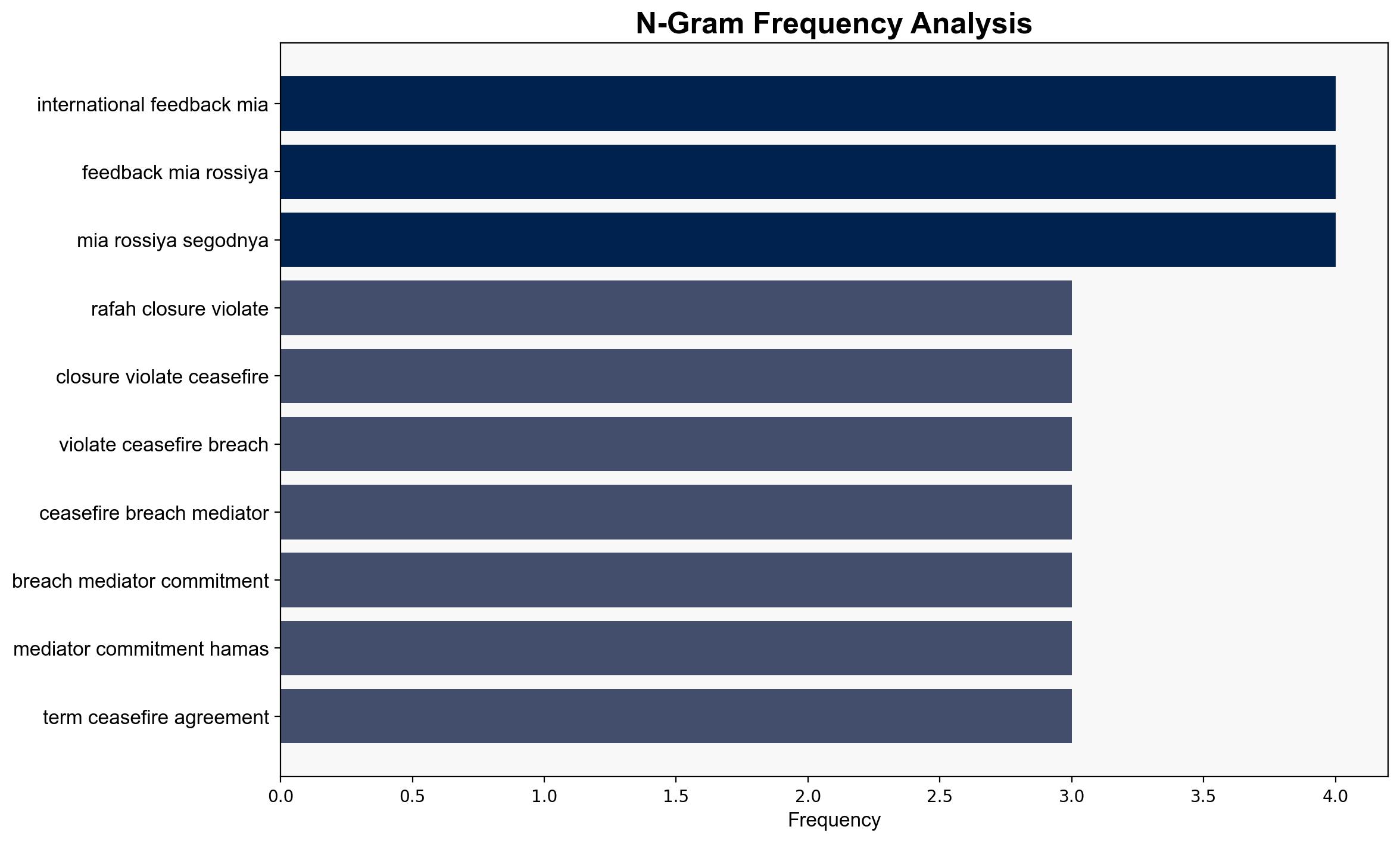Rafah Closure Violates Ceasefire Breaches Mediator Commitments Hamas – Sputnikglobe.com
Published on: 2025-10-19
Intelligence Report: Rafah Closure Violates Ceasefire Breaches Mediator Commitments Hamas – Sputnikglobe.com
1. BLUF (Bottom Line Up Front)
The closure of the Rafah crossing by Israel, as reported, is a significant point of contention in the ongoing Israel-Palestine conflict. The most supported hypothesis is that this action is a strategic maneuver by Israel to exert pressure on Hamas and influence negotiations, despite the ceasefire agreement. Confidence in this assessment is moderate due to the complex geopolitical dynamics and potential biases in the source. Recommended action includes diplomatic engagement to ensure compliance with ceasefire terms and prevent further escalation.
2. Competing Hypotheses
1. **Hypothesis A**: Israel’s closure of the Rafah crossing is a deliberate violation of the ceasefire to apply pressure on Hamas and gain leverage in negotiations.
– **Supporting Evidence**: The closure restricts movement and humanitarian aid, which could be used to pressure Hamas.
– **Contradictory Evidence**: Israel may argue security concerns justify the closure.
2. **Hypothesis B**: The closure is a response to specific security threats or intelligence indicating potential attacks, rather than a breach of the ceasefire agreement.
– **Supporting Evidence**: Historical precedence of security-driven closures.
– **Contradictory Evidence**: Lack of publicly available specific threat information.
Using ACH 2.0, Hypothesis A is better supported due to the strategic benefits Israel might gain and the lack of specific threat details supporting Hypothesis B.
3. Key Assumptions and Red Flags
– **Assumptions**: Assumes Israel’s actions are primarily strategic rather than security-driven. Assumes Hamas’s claims are accurate and unbiased.
– **Red Flags**: Potential bias in the source (Sputnik), which may reflect a particular geopolitical stance. Lack of independent verification of claims.
– **Blind Spots**: Insufficient information on internal Israeli security assessments and decision-making processes.
4. Implications and Strategic Risks
The closure could exacerbate humanitarian conditions in Gaza, increasing international criticism of Israel and potentially leading to renewed hostilities. Economic impacts include disruption of aid and trade. Geopolitically, this action may strain Israel’s relations with Egypt and other regional actors. Psychologically, it could harden positions on both sides, reducing the likelihood of a negotiated settlement.
5. Recommendations and Outlook
- Engage diplomatically with both Israel and Hamas to ensure compliance with ceasefire terms and facilitate the reopening of the Rafah crossing.
- Monitor for changes in regional alliances and potential shifts in international support.
- Scenario Projections:
– **Best Case**: Diplomatic efforts succeed, leading to the reopening of the crossing and adherence to the ceasefire.
– **Worst Case**: Escalation of conflict due to humanitarian crisis and increased hostilities.
– **Most Likely**: Continued diplomatic stalemate with sporadic violations of the ceasefire.
6. Key Individuals and Entities
– Benjamin Netanyahu
– Hamas leadership
– Egyptian government (as a regional mediator)
7. Thematic Tags
national security threats, regional focus, geopolitical dynamics, humanitarian crisis





